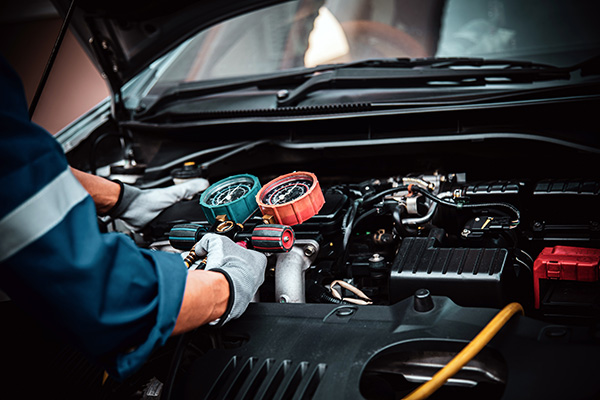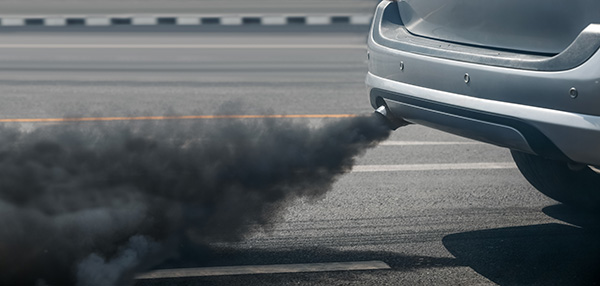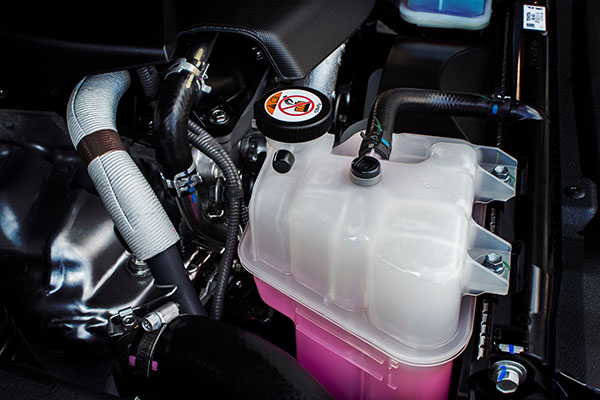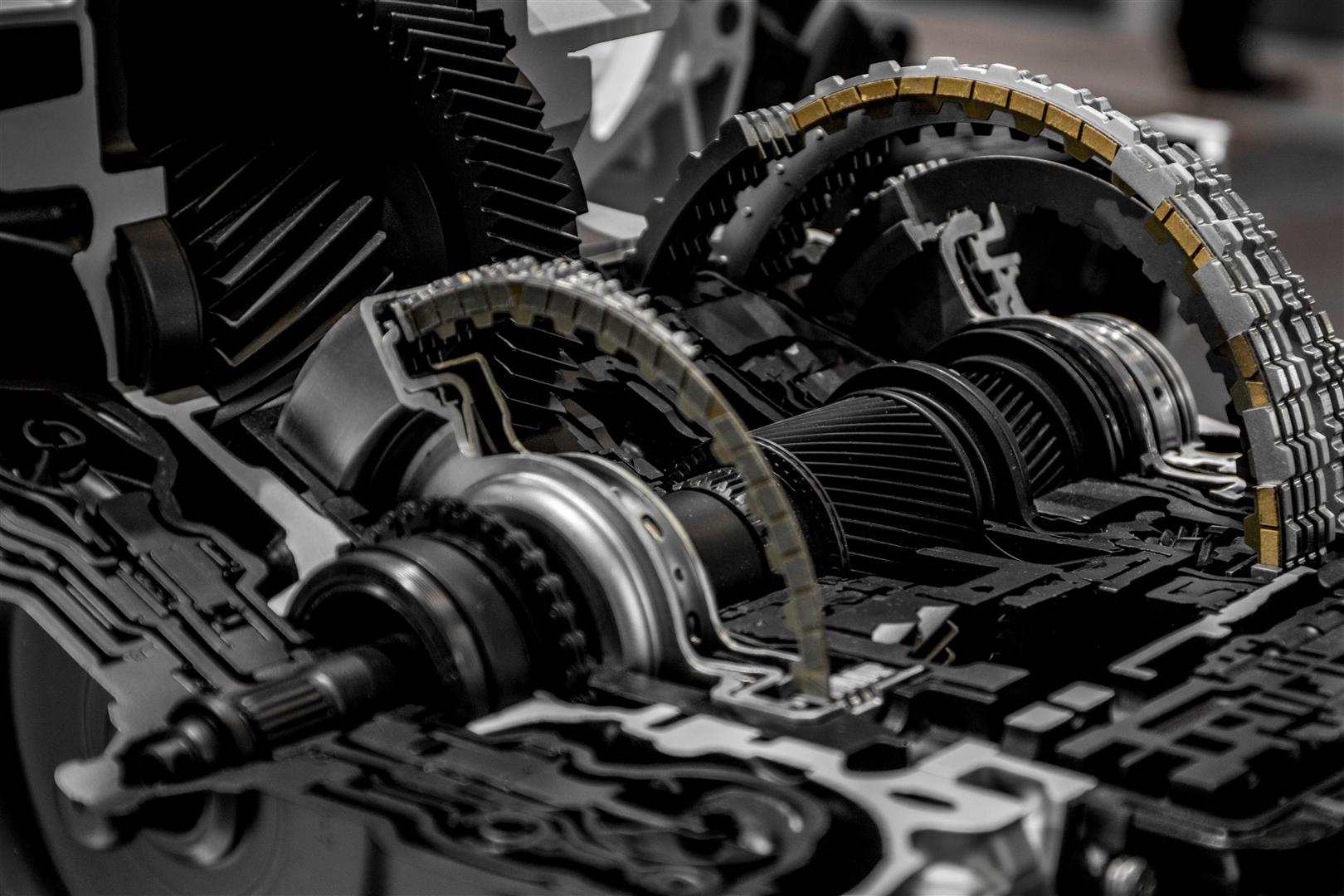Posted on 5/28/2024

Driving in the scorching Nevada desert heat can damage your car's air conditioning system. We'll share practical strategies for keeping your AC running smoothly in extreme temperatures and highlight the crucial role of regular maintenance in preserving its performance. The Desert Climate The desert climate presents unique challenges for car AC systems. With temperatures soaring well above 100°F, AC units are pushed to their limits to provide much-needed relief from the heat. The dry air and intense sunlight further exacerbate the strain on these systems, making proper maintenance essential. Tips for Keeping Your Car AC RunningPark in the Shade: Whenever possible, park your car in shaded areas to minimize direct exposure to sunlight. This helps prevent excessive interior heating and reduces the workload on your A ... read more
Posted on 4/27/2024

When you glance at your car's exhaust pipe, you might notice different hues emanating from it. But what do these colors signify? Understanding the meaning behind exhaust colors can provide valuable insights into your vehicle's health and performance. 1. Blue Exhaust A blue tint in your car's exhaust indicates the presence of oil in the combustion chamber. This could be a result of worn piston rings, damaged valve seals, or a malfunctioning PCV (positive crankcase ventilation) system. Oil consumption can lead to engine damage and decreased fuel efficiency, so it's crucial to address this issue promptly. 2. Black Exhaust If your car's exhaust emits thick, black smoke, it suggests that the air-fuel mixture is too rich. This means there's an excess of fuel in the combustion chamber, leading to incomplete combustion. Comm ... read more
Posted on 3/29/2024
%20(Small).jpeg)
Are you looking to unleash your car's full potential? While traditional methods like engine tuning and upgrading components are well-known, some unconventional approaches can take your driving experience to the next level. Exploring Unconventional Performance Boosters When it comes to improving your car's performance, thinking outside the box can yield surprising results. Here are five unconventional methods to consider: Aerodynamic Modifications While aerodynamic enhancements are typically associated with racing cars, they can also benefit everyday vehicles. Installing a front splitter, rear spoiler, or side skirts can improve airflow around the vehicle, reducing drag and increasing stability at high speeds. Additionally, aero wheels with specialized designs can further enhance aerodynamic efficiency, leading to improved fuel economy and performance. Cold Air Intake Upgrading to a cold air intake system can significantly enhance your car's performanc ... read more
Posted on 2/29/2024
.jpeg)
As a car owner, you're likely aware of the importance of regular maintenance to keep your car running smoothly. While tasks like oil changes and tire rotations are well-known, the fuel injection system is one aspect of maintenance that often flies under the radar. Fuel Injection System 101 Before we dive into maintenance tips, let's take a moment to understand the fuel injection system and its role in your vehicle. The fuel injection system is responsible for delivering the precise amount of fuel to the engine cylinders for combustion. Unlike older carburetor systems, fuel injection systems offer more precise control over fuel delivery, resulting in improved fuel efficiency, performance, and emissions. Components in the system include: Fuel Tank Pump Fuel Filter Lines Injector(s) Pressure Regulator Rail Pressure Sensor Pressure Relief Valve Return Line ... read more
Posted on 1/31/2024
.jpeg)
In the intricate world of automotive care, the significance of engine oil is universally acknowledged. It's the lifeblood of your car, ensuring smooth performance and longevity. However, an equally vital but often less understood aspect is the vehicle's electrical system. Let's unravel the mysteries of this crucial component and learn how to maintain it. The Electrical System Explained Your car's electrical system is like the nervous system of the human body. It consists of the battery, alternator, and starter. The battery provides the juice to get your car going, the alternator keeps it running by charging the battery, and the starter kick-starts the engine upon ignition. Battery The battery, your car's powerhouse, stores electrical energy needed to start the engine. It's vital to regularly check your battery's health - look for signs like ... read more
Posted on 12/22/2023

As we navigate the sweltering days of summer or endure the relentless traffic jams, our vehicles bear the brunt of the heat. Behind the scenes, a silent warrior works tirelessly to prevent our engines from turning into a fiery inferno – the cooling system. Cooling System 101 The primary role of the cooling system is to regulate your engine's temperature, preventing it from overheating and succumbing to the stress of constant operation. Imagine it as the body's circulatory system, ensuring a steady flow of coolant to disperse the heat generated during combustion. Components - Radiators, Fans, and PumpsRadiators Think of radiators as the unsung artists in the engine-cooling gallery. They dissipate heat by exchanging it with the passing air, featuring a network of tubes and fins that enhance the cooling process ... read more
Posted on 11/30/2023
.jpeg)
Amidst the engine's hum and the traffic lights, something is going under the hood of your car that you probably never think of – components that are constantly lubricated by fluids. But why is that you might ask? Well, that's why we are here today! Lubricating the Vital Parts The engine relies on a delicate balance of moving parts, and this all demands proper lubrication. Engine oil is crucial in ensuring the smooth operation of pistons, camshafts, and crankshafts. Regular oil changes, in sync with your vehicle's maintenance schedule, are like providing a tonic for your engine's heartbeat, keeping it robust and efficient. Transmission Lubrication The transmission system is akin to the sidekick of a her, ensuring that the gears shift seamlessly and your vehicle glides effortlessly through different speeds. Transmission fluid ... read more
Posted on 10/31/2023
.jpeg)
There it is, that dreaded glow on your dashboard - the check engine light. In a split second, it can evoke a range of emotions, from mild annoyance to sheer panic. Yet, this enigmatic indicator isn't just a cause for concern; it's a valuable communication tool between your car and you. Understanding its nuances, deciphering its signals, and taking the necessary steps to address it can not only eliminate potential issues but also prevent costly repairs down the road.Decoding the Check Engine Light's MessagesThe check engine light isn't a cryptic enigma - it's a messenger that conveys valuable insights about your car's health. When illuminated, it signifies that the onboard diagnostic system has detected a potential issue, ranging from a loose gas cap to a ma ... read more
Posted on 9/30/2023

Your car is a finely tuned instrument, with every part working in harmony to create the symphony of your daily commute. But just like a musical instrument, over time, your vehicle might need a little fine-tuning to keep performing at its best. That's where tune-ups come into play. While the term "tune-up" may sound like an automotive buzzword, it holds real significance in the world of car maintenance. Understanding the Art of Tune-Ups So, what exactly is a tune-up? Think of it as a spa day for your car but with a purpose beyond relaxation. A tune-up is a comprehensive maintenance service that involves inspecting, adjusting, and replacing various components of your vehicle to ensure it operates at peak performance. Benefits That Go Beyond the Engine Now, let's uncover the incredible benefits of scheduling a tune-up: 1. Improved Fuel Efficiency A well-tuned engine runs more efficiently, which transl ... read more
Posted on 8/24/2023

We get it – cruising the streets of Las Vegas and Summerlin is a blast, but when the sun turns up the heat, your car's air conditioning becomes your new BFF. Picture this: a cool breeze, your favorite tunes blasting, and a grin from ear to ear. That's the magic of a well-functioning AC, and we're here to make sure your summer joyride stays as cool as a cucumber! Keep Your Cool Factor Sure, Vegas is famous for its scorching summers, but your car doesn't have to feel like an oven on wheels. Our air conditioning service is your secret weapon against the heatwave blues. We'll make sure your AC system is running smoothly and cool, so you can stay comfy while cruising the Strip or hitting the open road. Signs You're Due for A/C Service Not sure if your A/C needs a little TLC? No problemo! Here are a few telltale signs that it's time to roll into our shop: Is your air conditionin ... read more